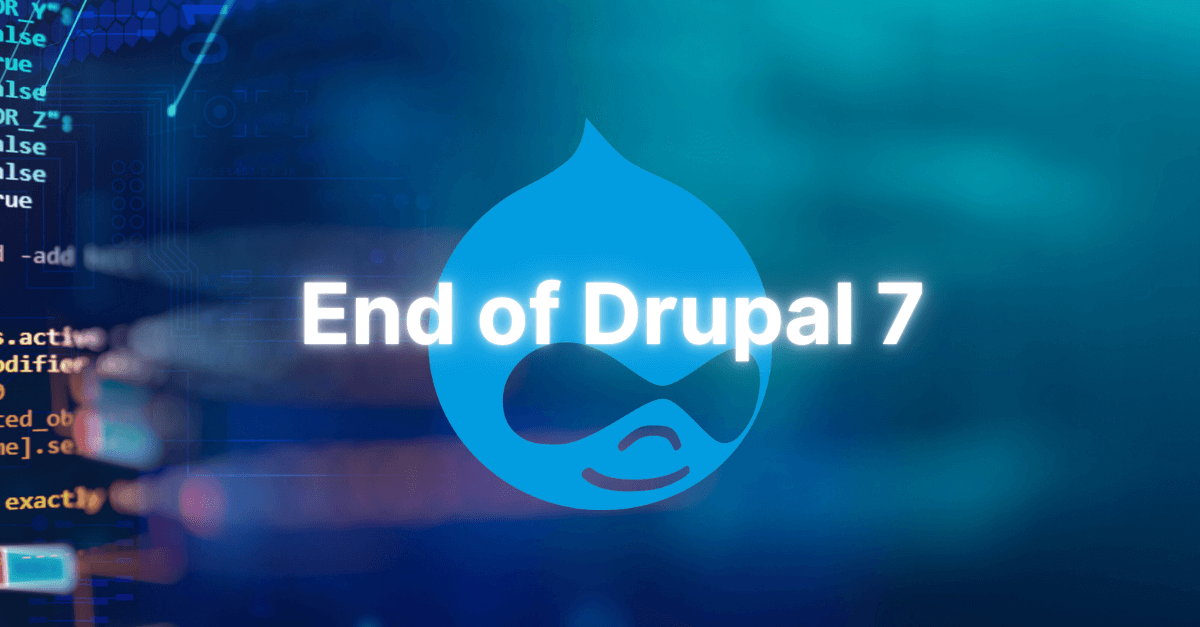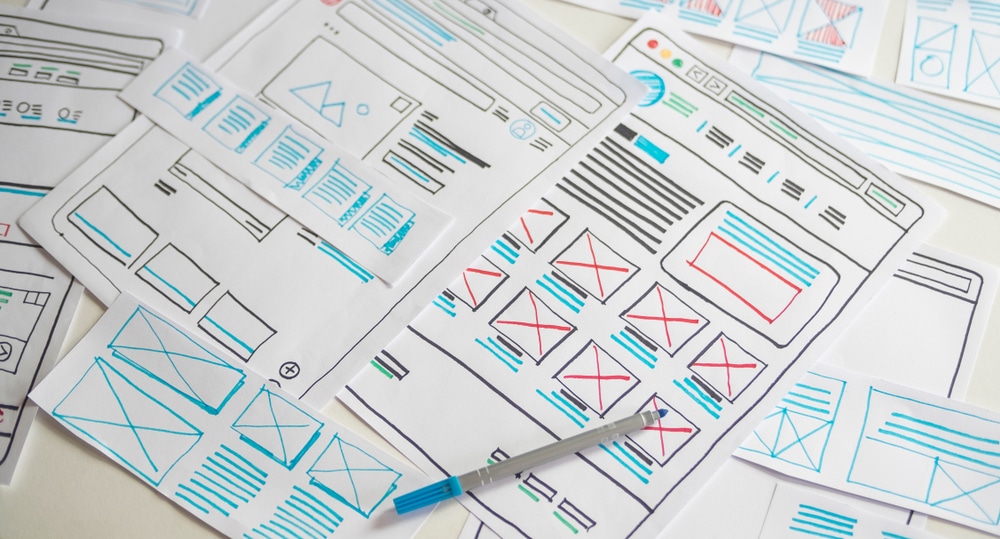
What Does the End of Drupal 7 Mean for Your Digital Growth?
If your website is still running on Drupal 7, it’s time to make a plan. Support for Drupal 7 is officially ending on 5 January 2025.
As a digital leader, this presents significant challenges so we’ve created this article to cut through the technical complexity and help you understand:
- What happens if you’re still using Drupal 7 after January 2025
- The best alternatives to Drupal for global brand leaders
- How to ensure a headache-free migration from Drupal to another enterprise CMS
Drupal is outdated for content-driven brands
Drupal might have been a solid choice a decade ago, but today’s digital demands and emphasis on content marketing, call for a CMS that is faster, more intuitive, and less reliant on IT resources.
Over the past few years, it appears Drupal has gradually been reducing its investment in content publishing and instead shifted more toward complex, data-driven applications. This increasing complexity has left many brand leaders frustrated, as they seek to streamline their tech stack rather than add to the chaos. Drupal’s developer-centric architecture can feel like a roadblock, especially when your team is under pressure to rapidly produce and publish content across multiple channels.
And now, almost 14 years after its inception, Drupal has finally decided to stop supporting Drupal 7 completely. Instead, its focus appears to be on creating solutions aligned to more complex, developer-heavy sectors like government and financial services.
(Caption: Drupal End of Life https://www.drupal.org/about/drupal-7/d7eol/partners)
As a result of the decision to end Drupal 7, many brand leaders are now evaluating their CMS to identify the ideal tech stack for future growth.
As a Drupal 7 user, you essentially now have 3 choices:
- Remain on Drupal 7 and accept the business risk
- Migrate to another version of Drupal and accept the compromises
- Migrate to a CMS that’s better suited to your current business needs
We’ll explain the implications of each option now:
What are the risks of remaining on Drupal 7?
1. Increased Security and Compliance Risks
Remaining on an unsupported technology platform is fraught with risk, especially for enterprise brands with tight security and compliance requirements
After 5th January 2025, Drupal 7 will no longer receive official security updates or patches. That means every day after the cut-off date, your site becomes a bigger target for security breaches.
According to a 2024 Cyber Threat Report, there were around 7.6 trillion website intrusion attempts last year — that’s a 20% jump from the previous year.
A hacked site can cost you more than just dollars; it can damage your brand’s credibility and trust – and in the case of data breaches, open up a can of legal worms.
Security issues aside, there are many practical issues with remaining on Drupal that affect your day-to-day operations.
2. Inefficient Editorial Experience
One of the biggest complaints we hear from content teams using Drupal is how slow and frustrating it can be to update even the simplest elements. Drupal’s complexity often means marketers are stuck waiting for developers to publish or edit pages. This bottleneck creates huge inefficiencies and slows business growth.
Operational frustration is one of the biggest reasons why brand leaders ask us to migrate them from Drupal to WordPress.
For US niche publisher Her Campus Media, the autonomy created by moving from Drupal to WordPress was game-changing. It put their content creation team in the driver’s seat enabling them to launch new campaigns, update and optimise content directly in the CMS and respond faster to their audience’s needs. The move also turbocharged website performance.
“Load speed was cut in half and all of the scores we use to evaluate site health (such as engagement and page views) almost doubled. ”
Director of Product Engineering & IT, Her Campus Media
3. Increasing Costs and Lower ROI
Maintaining a Drupal 7 site post-end-of-life is not only risky but also costly. You’ll need to find a specialist developer with specific knowledge of this outdated version of Drupal and trust them to create custom security patches every time a vulnerability is identified.
As hosting providers, browsers, and third-party integrations evolve, Drupal 7 may also encounter compatibility issues. This means you’ll lose access to emerging martech tools and could potentially lead to service disruptions.
The best alternative to Drupal for enterprise brands
If content is part of your growth strategy, remaining on Drupal is likely not the best choice for your business.
But what’s the best alternative to Drupal for a growing brand? This is a question we’re asked so often, that we created an entire article demystifying the many CMS options for brand leaders.
But essentially, if you’re looking for a robust enterprise-grade CMS that doesn’t lock you into rigid tools and mammoth monthly subscription fees, WordPress should be high on your list. There’s a reason Vox Media abandoned its own proprietary CMS (Chorus) in favour of WordPress WordPress is also the CMS of choice for 63% of enterprise, high-traffic websites including Disney, Microsoft, Nike and FUJIFILM X.
Creating Omnichannel Experiences with WordPress
More and more brands are demanding omnichannel experiences that engage audiences seamlessly across multiple touchpoints (including mobile, desktop, apps, social media, or in-person).
When it comes to supporting omnichannel strategies, WordPress outshines Drupal in several ways. With WordPress, brands have access to an enormous library of plugins that integrate directly with CRM, e-commerce, social, and marketing tools—making it simple for non-technical teams to manage complex, multichannel campaigns without relying heavily on developers.
The WordPress REST API also makes it easy to connect with external platforms, enabling brands to sync data across all channels quickly.
Take for example, AusDoc, a leading medical publishing group that connects GPs to pharmaceutical representatives. The original AusDoc website was built in Drupal but when the in-house wanted to build an interactive community to connect multiple audiences, Drupal lacked the capabilities.
The Code Company partnered with AusDoc’s technology team to custom-build a WordPress-powered omnichannel experience, which was transformational for both the business and its audience.
“We wanted to move beyond publishing and build communities but Drupal’s plugin marketplace is limited.
We considered going headless but you end up paying for a much larger team to maintain a much more complex solution. So moving to WordPress opened up a lot of opportunities for us.”
Head of Technology Australian Doctor Group
READ MORE: Building a unified digital community using WordPress and a mobile app
Website Migration Doesn’t Have to Be a Nightmare
We get it—replatforming your website sounds overwhelming. But with a strategic approach and guidance from a data migration specialist the process can be straightforward – and the business results, transformational. The Code Company has led dozens of enterprise website migrations and knows how to ensure your data stays safe, your site stays stable and your SEO remains intact.
READ MORE: Our Discovery Process: Why Projects Succeed at The Code Company
Final thoughts: A Blessing in Disguise for Drupal Users
The end of Drupal 7 support is more than a technical update—it’s a strategic opportunity.
So take a moment to assess your digital strategy and ensure your CMS supports your growth goals. As many global brand leaders have discovered, WordPress often unlocks faster content delivery, streamlined maintenance, and the flexibility to test new features without the limitations of an outdated CMS.
By moving to WordPress, you’re not just keeping your site alive; you’re future-proofing it.

